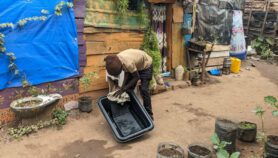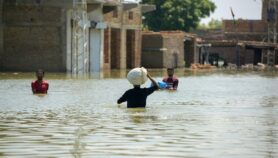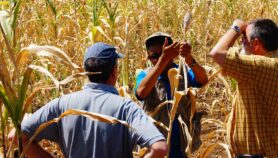By: Maina Waruru
Send to a friend
The details you provide on this page will not be used to send unsolicited email, and will not be sold to a 3rd party. See privacy policy.
[NAIROBI] Insurers will assess in October whether Kenyan farmers signed up to the Index-Based Livestock Insurance scheme will receive their first payment, after the worst drought in the region for 60 years.
The scheme, which has been piloted in northern Kenya since early 2010, uses freely-available satellite data to assess the state of pastures. When the images show that pastures have dried up, farmers can claim compensation for animals that have died as a result — without insurers having to verify the deaths in person.
In Kenya about 2,500 farmers have purchased the product since its inception, paying a yearly premium of up to US$100 for 6–8 animals. No payouts have been made yet, but farmers who lost more than 15 per cent of their cattle may receive around US$180 per animal.
"So far, the predicted mortality [rate is] high — but we have to wait for the final tally at the end of October in order to determine whether or not there will be a payout," said Brenda Wandera, project development manager at the International Livestock Research Institute (ILRI), Kenya, which implemented the scheme.
The scheme will be extended to southern Ethiopia in February 2012 to help mitigate the effects of drought. It will initially target 2,700 pastoralists. The aim is to find a viable insurance tool that could cushion pastoralists from heavy losses experienced during droughts, according to Wandera.
But Mathew Kibaara, former deputy director of veterinary services in Kenya, said that, while this is an innovative scheme, tailoring it to all livestock keepers will be a challenge.
"[For example] the motivation to purchase premiums for animals for herders may not be as high as that of dairy cattle keepers, since the value of individual cows kept by pastoralists is not as high as that of dairy herds," he said.
Kibaara added that pastoralists’ lack of experience with buying insurance will make this task very difficult.
However, Wandera said the Ethiopian pilot will benefit from lessons learned in Kenya, such as the need for improving communication methods and educating and training farmers on insurance.
"We have used ‘village insurance promoters’ who are recruited from different towns within the district to carry out extension functions. We are also developing radio and video extension tools that will be in the vernacular so that the pastoralists can understand the concept better."













